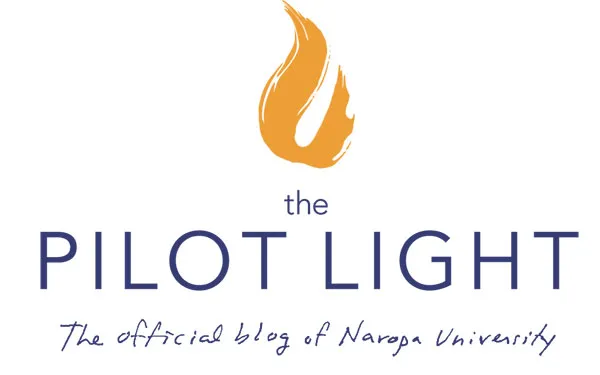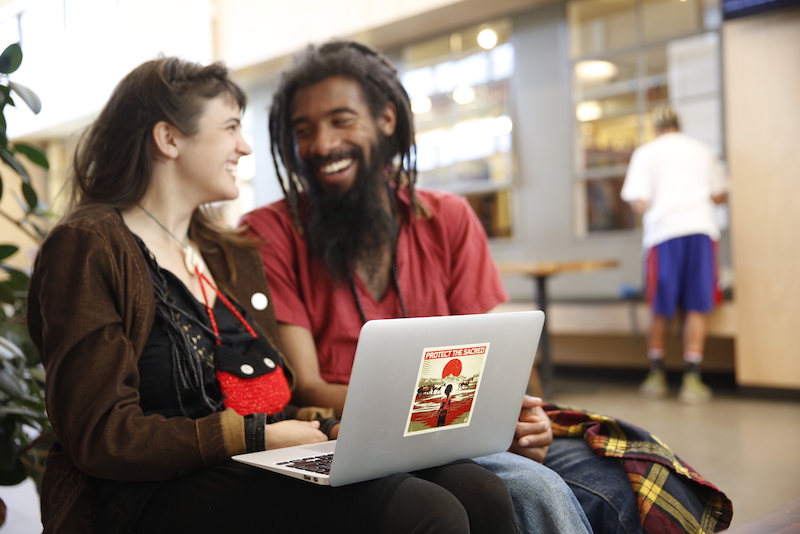
Interview with Lynn DiLorenzo, PhD, Associate Professor and Associate Provost for Faculty
Please tell us a little about your academic background.
My PhD is in higher education and organizational change with a specialization in feminist studies. I also have an MA in vocational special needs education.
Interestingly, my undergraduate work was very interdisciplinary—I was an English major with minors in psychology and philosophy. I also took a lot of electives in film and art. I remember taking courses in Existentialism, Buddhism, and Literary Criticism, foregrounding work I would do much later here at Naropa. There was a Junior Honors Seminar in which I looked at the influence of eastern philosophy in T.S. Elliot’s Four Quartets. I often talk to students now about how following their heart in terms of their academic choices is important for keeping aligned with an authentic life/work path.
I think, overall, my education has prepared me well to be an integrative thinker. Or maybe, I am an integrative thinker and pursued an education that supported that.
It wasn’t until I studied feminism, formally, that I became aware of the importance of seeing the world, problems, and issues with multiple lenses and with a range of methodological approaches.
What made you decide to become a professor?
I never set out to be a professor (although I remember thinking it would be great to be a philosopher. I just didn’t think there was such a job, especially for women). I started as a teacher in a vocational school for at-risk youth in my twenties. That was when I fell in love with teaching. First thing we did was subvert the curriculum; instead of “office occupations/word processing,” the students wrote a newsletter where they reflected on their life challenges.
When I went back to get my MA, I was recruited, or invited, to teach in that program. After that, I pretty much never left higher education. This was a career path that fit with being a mother—well, at least more than many other professional careers.
Also, I love being in the world of ideas and learning; and being a professor allowed me to sort of be in graduate school forever. I believed in and still believe in higher education as a way to transform your life. I saw the difference it made for me and for so many people, particularly people from marginalized groups.
When I started teaching women’s studies, my world was rocked. It was the most rigorous, intellectually stimulating, and meaningful thing I had ever studied. I was struck by how badly this type of education was needed and how it completely altered people’s consciousness.
So, I was hooked.
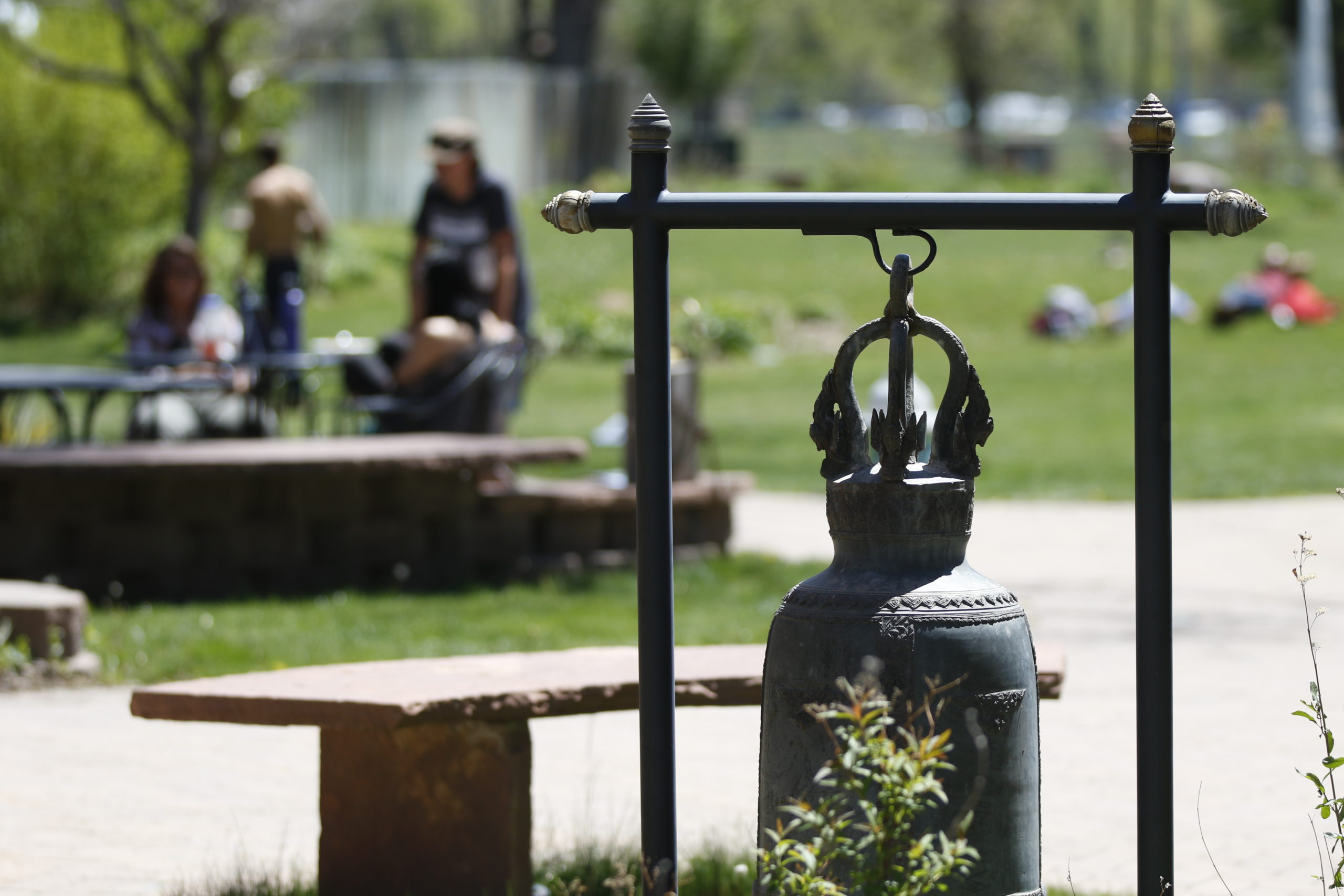
What do you like best about Naropa University?
Naropa is unlike any other higher education institution I’ve been a part of.
It offers a kind of educational experience that is truly progressive, groundbreaking really—this idea that higher learning is about development of the whole person—mind, body, spirit—and that education can be or should be grounded in values of compassion, inner knowledge, social justice, and sustainability.
I think the best part is that the community is committed to questioning everything, thinking outside of the box, nonconformity. This creates a container for powerful learning experiences, creativity, as well as personal and social transformation.
What do you like to do when you aren’t teaching or serving as an Associate Provost?
Nothing really out of the ordinary. I live a simple life now, enjoying the beauty and magic of everyday life. I love to grow things: gardening, spending time with the people I love, eating, drinking and being merry, playing around in my house. I have a 100-year-old house in Longmont that I love. I love walking my dog, and I usually have some kind of creative project going on. Visiting my children in Seattle and Boston. Journaling. I am constantly journaling, have been all my life. It’s my most important practice.
Tell us more about the Interdisciplinary (INTD) Studies program.
I love this program; it’s truly an opportunity to design a program of study that is aligned with your own authentic purpose, I think—to pursue what makes your heart sing and to translate that into meaningful work in the world and a way of living your life that has integrity.
Interdisciplinary programs, in general, are unique in that they start with a problem or question rather than with a disciplinary content area. Then a program of study is designed that draws from at least two different disciplinary areas that includes not only coursework, but extracurricular dimensions: internships, study abroad, community engagement; and that combines art-based, embodied, contemplative and critical ways of knowing.
At its best, it is a degree and education that is balanced in terms of the head, heart, and hands.

What makes it different from interdisciplinary or general studies programs at other institutions?
At Naropa, Interdisciplinary Studies is even more integrative than that. Students bring contemplative inquiry to their studies. This is an aspect that is not present in the typical INTD program.
The range of methodological approaches that a student can bring to their program of studies also includes the non-conceptual ways of knowing, as I mentioned earlier: arts-based, embodied, collaborative, nature-based, contemplative, as well as critical and analytical approaches.
The emphasis on inner knowing, starting with one’s own lived experience and inner wisdom as a way to focus one’s program of study enriches it in amazing ways. So in this program, personal and social transformation are inextricable. The culminating thesis and projects are almost always an offering that comes from what is most deeply resonant for students; often their pain, or struggle, is the fuel for remarkably creative and innovative work.
Can you please discuss the pedagogy behind the curriculum?
The key learning outcomes in this program are first, to become skilled in integrative inquiry—this ability to blur boundaries and to combine ways of knowing in new ways, to take the tenets, principles, theories, concepts, strategies, practices, and tools from one problem or set of problems and apply it to a different problem or question or issue.
And secondly, self-authorship, or the capacity to define oneself, to delve deeply into the questions of what has meaning and integrity for one as an individual, to become aware of how knowledge itself is constructed, and to develop a sense of purpose or worldview that becomes a navigation tool for making choices and taking responsibility for one’s life. Self-authorship is about developing a strong and more finely tuned internal voice, so that students can more deeply pursue questions of meaning and purpose in their lives.
These are the primary goals, not content or knowledge per se, but a way of being in the world that is resilient, compassionate, grounded, creative, and life-affirming—to build confidence in your inner voice and ability to deal with complexity and ambiguity, come up with creative innovative approaches to problems and daily living.
To get there, we expose students to myriad opportunities for inner reflection, making connections, creating projects that integrate the head, heart, and hands. They are empowered with a lot of freedom and flexibility in designing their programs. They are encouraged and supported in pursuing the full range of ways of knowing in their courses and thesis work.
For example, students can take coursework in arts-based inquiry, auto ethnography, and feminist and queer methods of inquiry—all highly integrative methodologies—and their final thesis can be critical, research-based, creative, service-based, or social entrepreneurial. Many students complete a written thesis and a companion project, like a performance, art exhibit, film, or community service project. Almost all students integrate the contemplative practice or guiding framework they’ve learned at Naropa into their program of study and and senior capstone work.
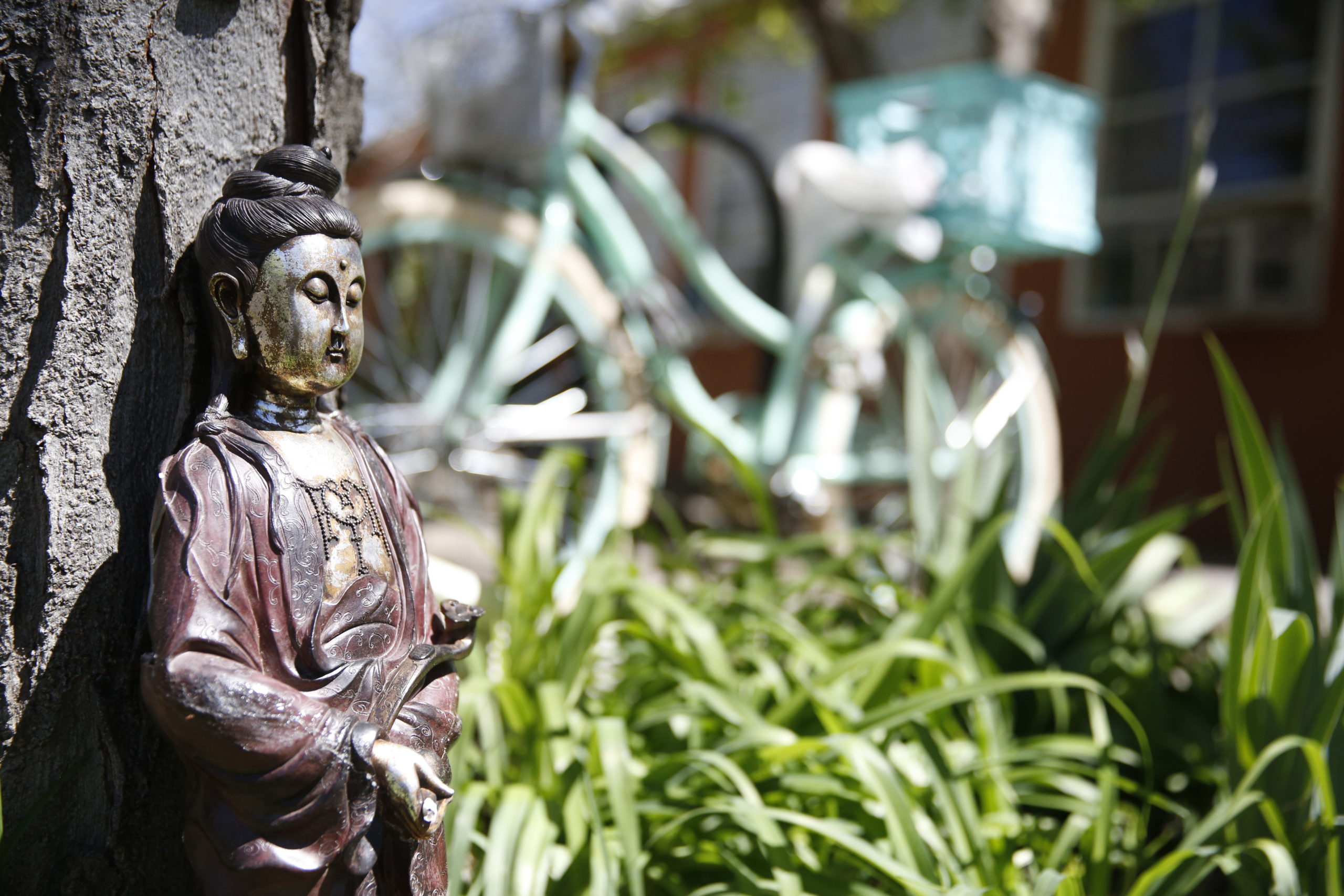
What should students considering your program expect regarding workload and academic rigor?
It’s rigorous in the sense that you are responsible for making choices with intention and purpose and that requires you to trust your inner knowing. You must be doing the inner work in order to design a program of study that is aligned with who you are and what you want to become.
This can feel uncomfortable at times. There is this tension between exploration and openness and purpose and intention. A capacity for questioning, living with ambiguity and complexity, developing inner resources for maintaining peace, clarity, and compassion (for the self and others) is necessary for making this educational and personal development journey count—that’s truly rigorous!
There is a kind of self-imposed rigor in that you must make choices: What do you want to learn? Okay, now go and do it! Where will you find this knowledge? These experiences and opportunities? How creative can you be in crafting this program of study? What community will you need to create and be a part of to realize your intentions? What will it require of you?
If you are doing this work, you will want to go deeper into your studies and into your self—the end game is not a grade, but a transformed self and a sense of authentic purpose. That is not easy to acquire!
Can you please share some examples of memorable thesis projects?
Oh, there are so many, even among this last group of spring graduates. One student explored sex work (stripping) as a form of women’s empowerment and reclaiming her embodied self through ethnography and narrative inquiry, and an arts-based photography project.
Another used her own experience surviving rape to develop an approach to healing that integrated yoga (as a practice and philosophy) and performance.
Another used his own experience as a black, gay man to understand how slave narratives and Christianity inform and constrain sexuality.
Other projects from the past include a student’s inquiry into the social determinants of health. Following a study-abroad research project on indigenous healing in Brazil, she explored her own experience serving cancer using alternative healing modalities.
Another developed a concept of radical ecological art as a way to promote sustainability values; another explored the idea of the child as master to understand art as a contemplative practice.
Another traced her own journey with an eating disorder and how she used depth psychology, feminism, authentic movement and creative writing to reclaim her sexuality.
How do the learning outcomes of this program align with the needs of the 21st century workforce?
In the Job Outlook 2011 report from the National Association of Colleges and Employers, analytic and problem-solving skills were ranked among the most important skills by employers. Similarly, in the AAC&U 2007 national study, 64% of employers wanted colleges to place greater emphasis on complex problem-solving skills.
It turns out that practices that support development of the whole person also increase learning outcomes like critical thinking. Thirty years of higher education research link link self-authorship with a number of critical learning outcomes. We know now that the capacity to self-author is crucial to the development of complex reasoning skills, healthy relationships, and a sense of identity.
In Daniel Pink’s, A Whole New Mind, we are reminded that we are no longer in the information age but rather, in the conceptual age, where high touch high concept skills are needed: design, play, storytelling, empathy, spirituality (deep questions that are intimate and ultimate), artistry, inventiveness and the most interesting to me, symphonic learning.
Pink describes symphony as the ability to see the big picture, connect the dots, combine disparate ideas into something new altogether. He suggest that this is an ability that is a great predictor of star performance in the workplace. Visual artists in particular are good at seeing how the pieces come together.
This is exciting when you think of what we are doing in Interdisciplinary Studies! Sort of counterintuitive, when we think of ‘job related skills,’ the old thinking is that college should prepare a student in a set of technical or vocation-specific skills. They are necessary, but not sufficient, for a lifetime in which most people will have five or six careers.
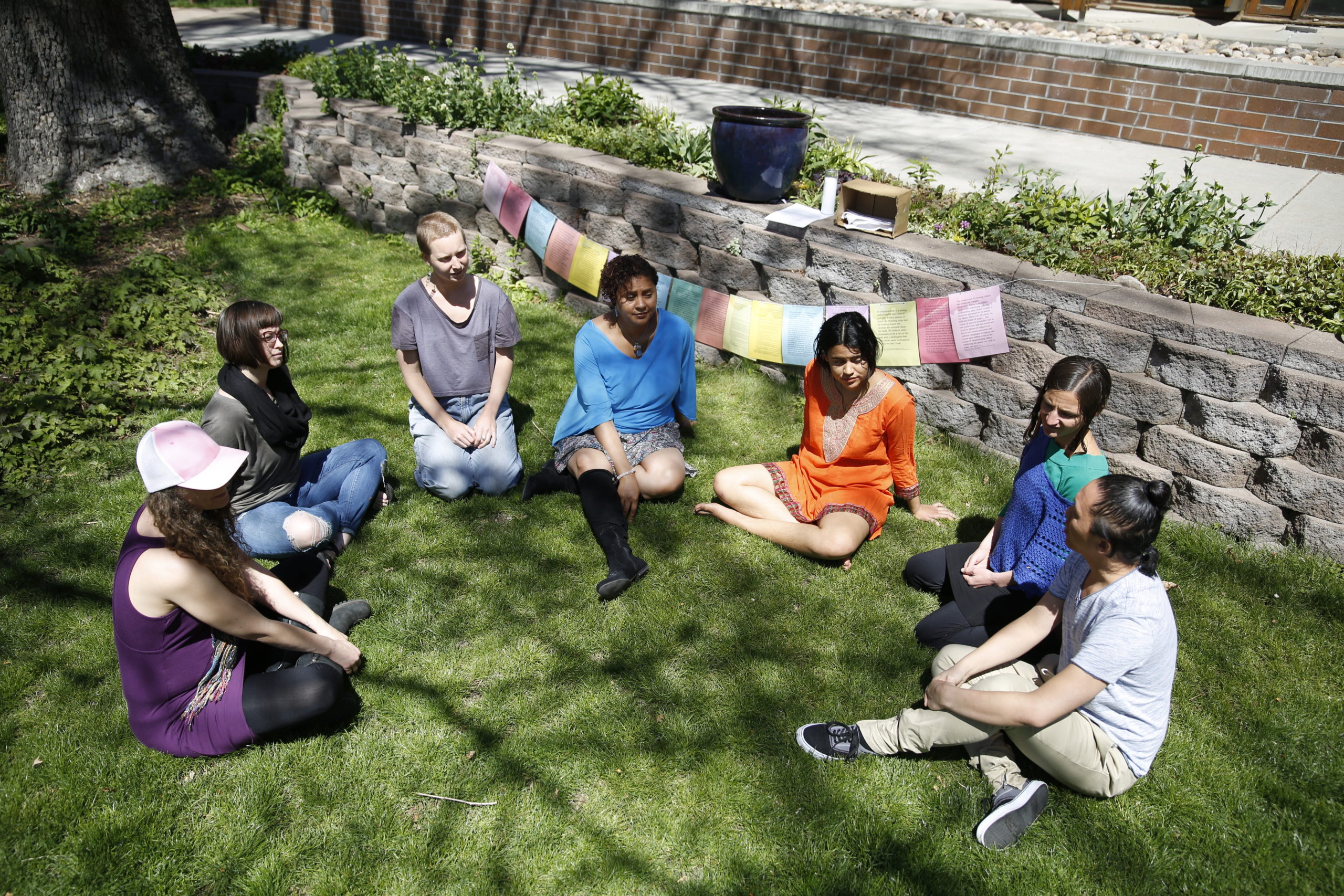
How do you define contemplative education?
Personally, I understand contemplative education to be education of the whole person that draws upon and values all of the various ways of knowing and understanding the world—really emphasizing the value of inner knowing that can be gained through non-conceptual knowledge—sitting mediation, creative practices, embodied experience. To me, it is very similar to the feminist idea of constructivist knowledge. This is very compatible, in my view, with developing a critical or feminist consciousness that allows us to see beyond social conditioning.
Contemplative education fits with my own postmodern or poststructuralist worldview—seeing beyond the illusion that there is a reality “out there” that is fixed and independent of one’s lived experience (including social location). It is about embracing the complexity of a world that is interdependent and transient at the same time, knowing that reality is a co-construction.
It is about values of compassion, (by that I mean love-centeredness and deep realization of how we are all connected in our human frailty and divine nature), and basic goodness, but also becoming a warrior for eliminating suffering in all its forms and sources and at all levels. So compassion often looks like conflict, challenge, speaking truth to power.
From your experience, what traits are most correlated with student success at Naropa?
An honest desire to grow and learn and heal (yourself and others), courage, self-acceptance, creativity, not fitting in and somehow knowing that this is a good thing.
How can students get involved outside the classroom at Naropa?
Building community or authentic networks and establishing and nurturing mentor relationships. Opportunities abound.
What advice would you share with students considering Naropa?
If you are ready to see how open your heart can be, to know who you truly are, to find your purpose in the world, to become part of a community of the most beautiful kindred spirits, this is the place for you.
Learn more about becoming a student at Naropa University.


